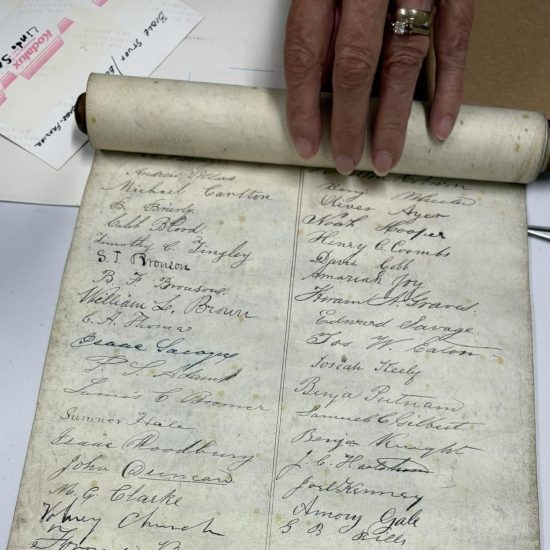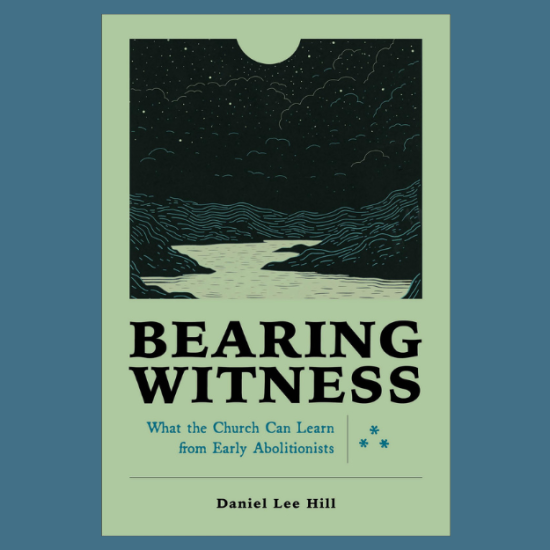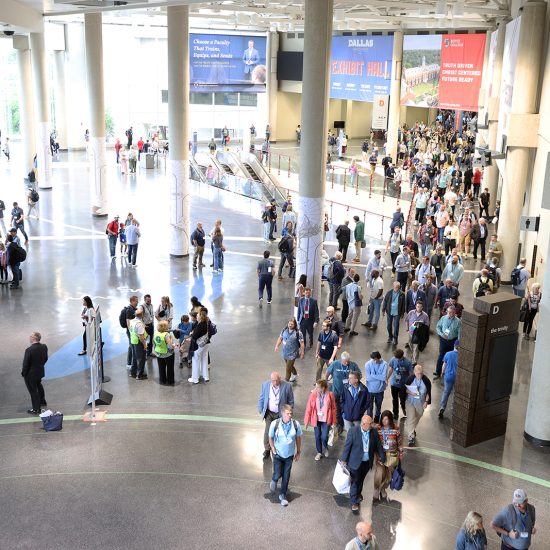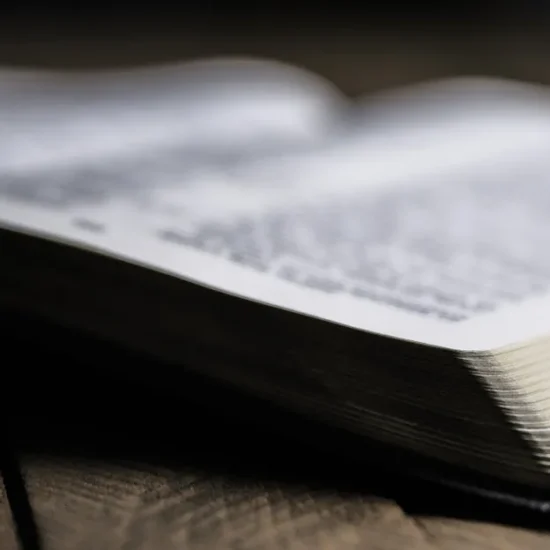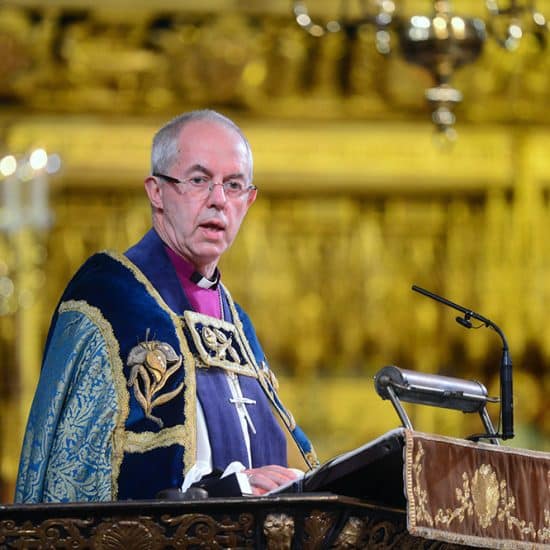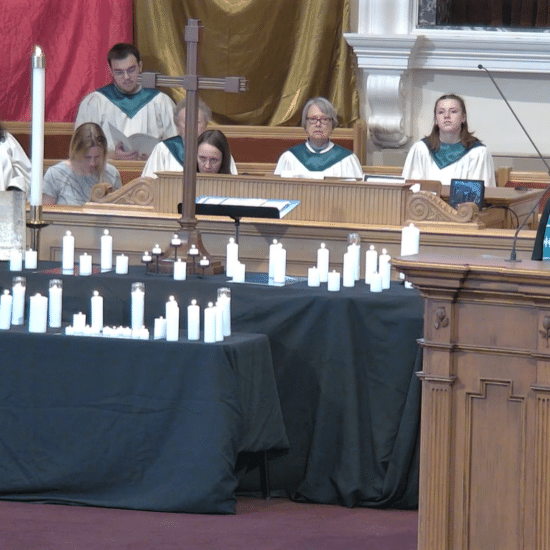
After months of some Black Southern Baptist leaders urging Southern Baptist Theological Seminary to remove names of enslavers from campus buildings and programs, trustees at the school in Louisville, Kentucky, unanimously voted Monday (Oct. 12) not to change the names. Trustees did, however, announce moves to further respond to the school’s slavery past.

In this photo from Southern Baptist Theological Seminary’s bookstore, a bobblehead of Al Mohler can be seen not far from a coffee mug with the likeness of James Boyce. (Lisa Weaver Swartz)
In 2018, SBTS released a 71-page report detailing how its four founders — James Boyce, John Broadus, Basil Manly Jr., and William Williams — together enslaved more than 50 persons. Additionally, Boyce served in the Confederate Army and Broadus was a Confederate chaplain. In addition to the seminary’s undergraduate school Boyce College, honors at SBTS include the James P. Boyce Centennial Library, Broadus Chapel, Manly Hall, and Williams Hall. And the enslaver founders can also be found on campus memorabilia like coffee mugs.
As the debate over the honors has played out the past few months, some prominent Calvinists connected to the school have not only defended keeping the campus honors but even defended the slavery of the founders.
While SBTS trustees rejected the idea of changing building names, they did commit to other actions, including pledging to “become more faithful in telling the seminary’s story, and the founders’ story with accuracy and biblical witness.” Additionally, they voted to create a $5 million scholarship fund to assist Black SBTS students by setting aside $1 million each academic year starting in the 2022-2023 year.
The trustees also voted to declare the Joseph Emerson Brown Chair of Christian theology vacant. Al Mohler as president had held that position named for Georgia’s governor who led the state to join the Confederacy. After the war, Brown amassed a fortune from mostly-Black convict leasing that scholars have called “slavery by another name.” He saved the school from financial collapse, and served as SBTS trustee board chair from 1883-1894. On Monday, SBTS trustees then created a new chair for Mohler, called the Centennial Chair of Christian Theology.
“We must ask whether any name is wrongly commemorated in our institutional life,” Mohler said about Brown. “We do not get to choose a history, but we do bear responsibility for who we commemorate and why.”
Defending the Decision
Mohler, who has opposed calls to rename the buildings, praised the trustee vote in an SBTS statement. At the meeting he had presented the trustees with an eight-page report urging them to keep the campus honors to SBTS’s enslaver founders.
“We’re not going to erase our history in any respect or leave our history unaddressed,” he said. “We’re trying to do what is right for a Christian institution. I’m incredibly thankful to this board of trustees for its careful deliberation of these issues and its unanimity in supporting Southern Seminary in dealing honestly with the burden of history and dealing respectfully with the blessing of a heritage.”
Mohler compared honors to the enslaver founders to biblical heroes like David and Moses who are still honored by later biblical writers despite major sins like murder.
“Our task is to honor the saintly without condoning, hiding, or denying the sinful. We have not done this well in the past. We must do better in the present and be more faithful in the future,” he added.
As he has done in the past, Mohler attempted to separate the slavery of the founders from their theology. He insisted, for instance, that Manly was critical in “defending biblical inerrancy.”
“They did not just establish the school, they defined the school theologically,” he said. “We stand in conviction on the great truths of the Christian faith and in confessional agreement with our founders. Their theological orthodoxy and Baptist confessionalism are an invaluable inheritance, and we stand with them in theological conviction, period. But we deal honestly with their sin and complicity in slavery and racism.”
“Our challenge is to be, simultaneously, the school of Boyce and Broadus and Manly and Williams — and yet not the same school with respect to racism, slavery, segregation, and other sins,” Mohler added. “We must be clear in our heartbreak and horror in the face of racism and racial supremacy. This is part of the burden of history. We must be clear in our embrace of the priceless legacy left us by those who founded this institution and sacrificed so that it would survive — who defined our convictions and laid foundations for theological faithfulness. This is the blessing of heritage.”
Thus, Mohler argued that removing the honors to its enslaver founders would make SBTS “a very different institution, and one that is less faithful in doctrine and confession.”
Clint Pressley, SBTS trustee chairman, voiced his support for keeping the campus honors to enslavers.
“This school is about the gospel and the gospel is about forgiveness, redemption, and moving forward,” he said. “Today, we saw the gospel shine a light on decision-making. Tough decisions were made, God-honoring decisions, and it provided a way forward.”
David Gray, an SBTS trustee and senior pastor of First Baptist Church of Garrettsville, Ohio, offered a similar assessment.
“What happened today is a demonstration of the grace of God, where men who were definitely flawed, did something very good in starting this seminary. But they also did some things that were very bad,” he said. “That’s how human nature is. All of us have sinned and fallen short of the glory of God. But God makes use of even sinners.”
SBTS last year rejected a call led by Baptists in Louisville that SBTS pay biblical reparations to Simmons College of Kentucky, a Black Baptist school in that same city, as an act of repentance for SBTS’s slavery legacy.

